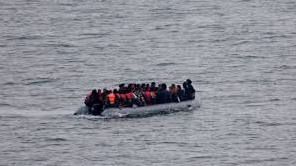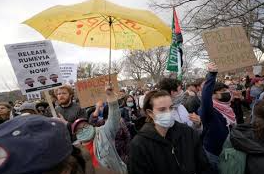
Exploring the reasons behind the perilous journeys to Britain and the origins of those seeking refuge
The migrant crisis continues to escalate, with increasing numbers of individuals attempting to cross the Channel from France to the UK. Despite significant efforts from both the UK and French governments, including millions of pounds spent on measures and numerous arrests, thousands of people remain determined to reach Britain, often paying large sums for the perilous journey.
The number of small boat crossings has surged since late 2018, with over 24,000 people making the dangerous crossing in 2021, a significant rise from previous years. In 2020, 8,404 people crossed, while in 2019, the number stood at 16,000. Asylum applications in the UK reached 35,737 in 2019 but have since decreased slightly to 29,456, with more people now arriving by small boats rather than through traditional air routes.
Tragically, the crossing continues to claim lives. Since 1999, 292 people have died attempting to cross, with 34 fatalities recorded this year, including 27 who drowned after their dinghy capsized in November.
Where are these migrants coming from?
The individuals making these hazardous journeys come from various conflict zones around the world. Many are fleeing the aftermath of war and persecution in their home countries, including Syria, where the civil war has displaced millions; Afghanistan, where the return of the Taliban has caused widespread instability; and Yemen, ravaged by ongoing civil war and airstrikes.
Migrants also come from countries like Iran, where human rights abuses, particularly against Kurds and religious minorities, have led many to seek asylum, and from Iraq, where years of conflict and internal unrest, particularly in the Kurdish regions, have left many vulnerable.
Eritreans face harsh military conscription, lack of freedoms, and government oppression, while Sudanese migrants are escaping the civil war in Darfur and government repression. Meanwhile, Vietnam’s restrictive regime and economic limitations drive many to leave in search of better opportunities.
Why the UK?
Despite reaching safe countries like France, many migrants still risk the dangerous crossing to Britain. Some are drawn by family already settled in the UK, while others have a better grasp of the English language compared to other European languages. Refugees often seek to claim asylum in the first safe country they arrive in, but many claim their experiences in France have been less than welcoming, with authorities failing to provide adequate support.
While Germany and France received higher numbers of asylum seekers in 2020, with 122,015 and 93,475 applications respectively, the UK received 36,041, making it the fifth largest recipient of asylum requests that year.












